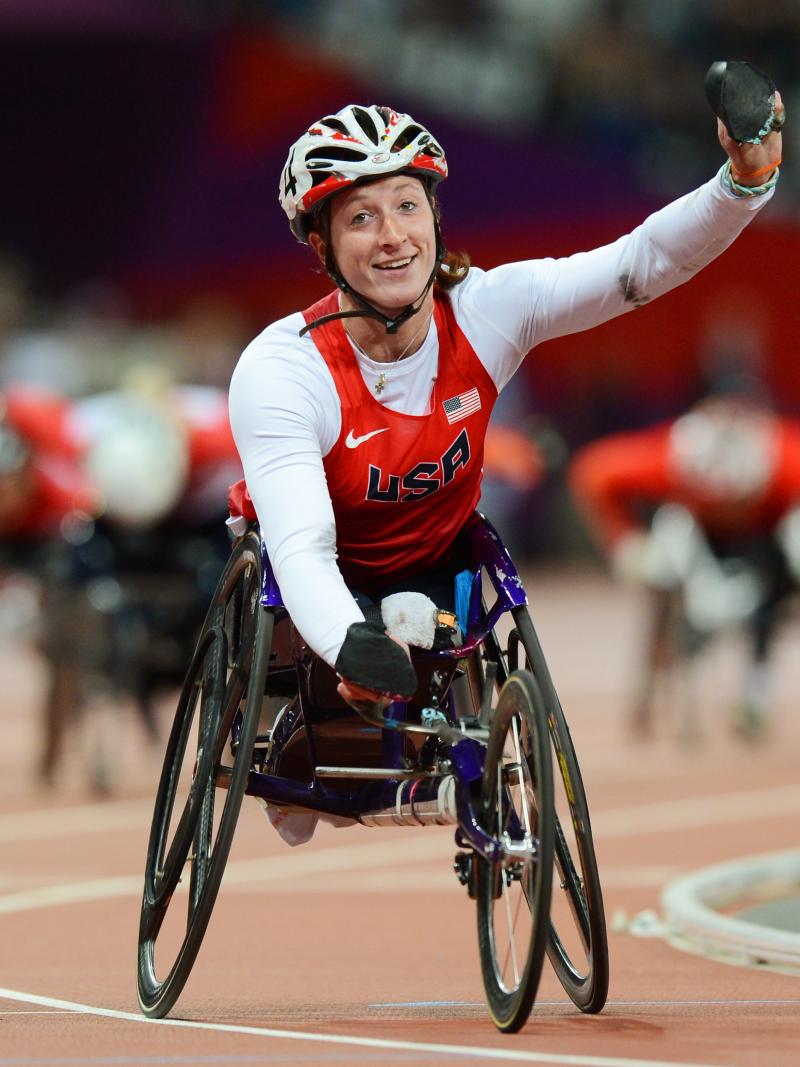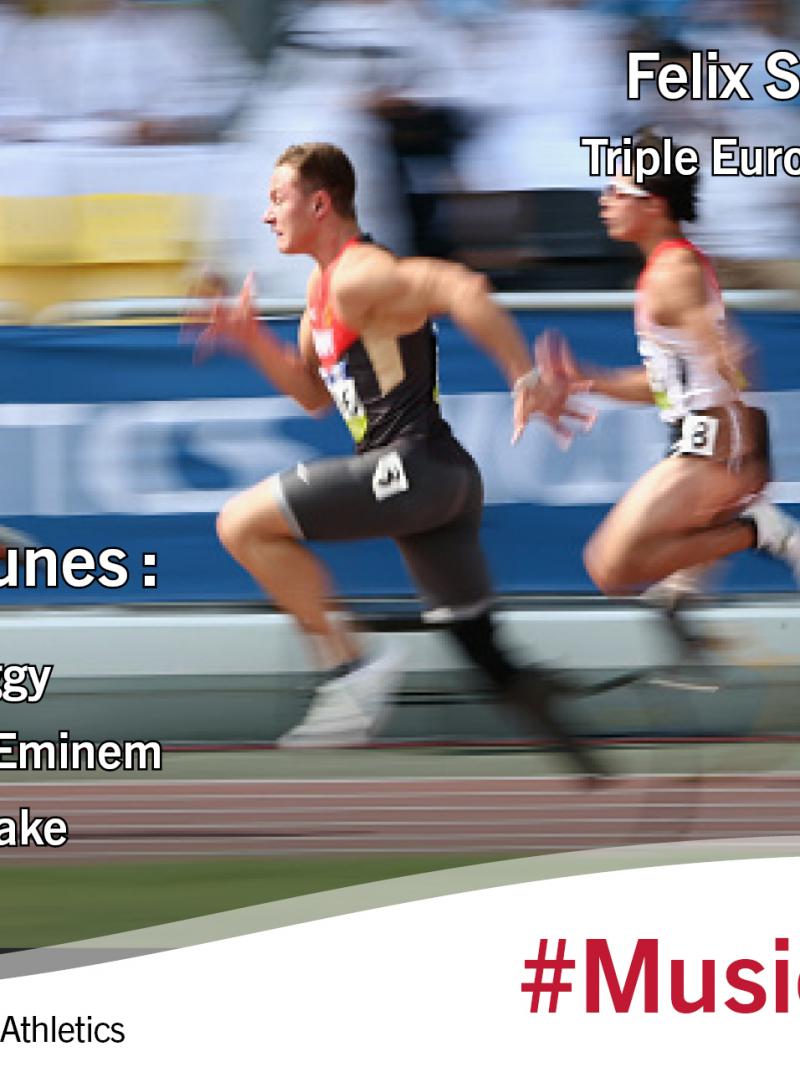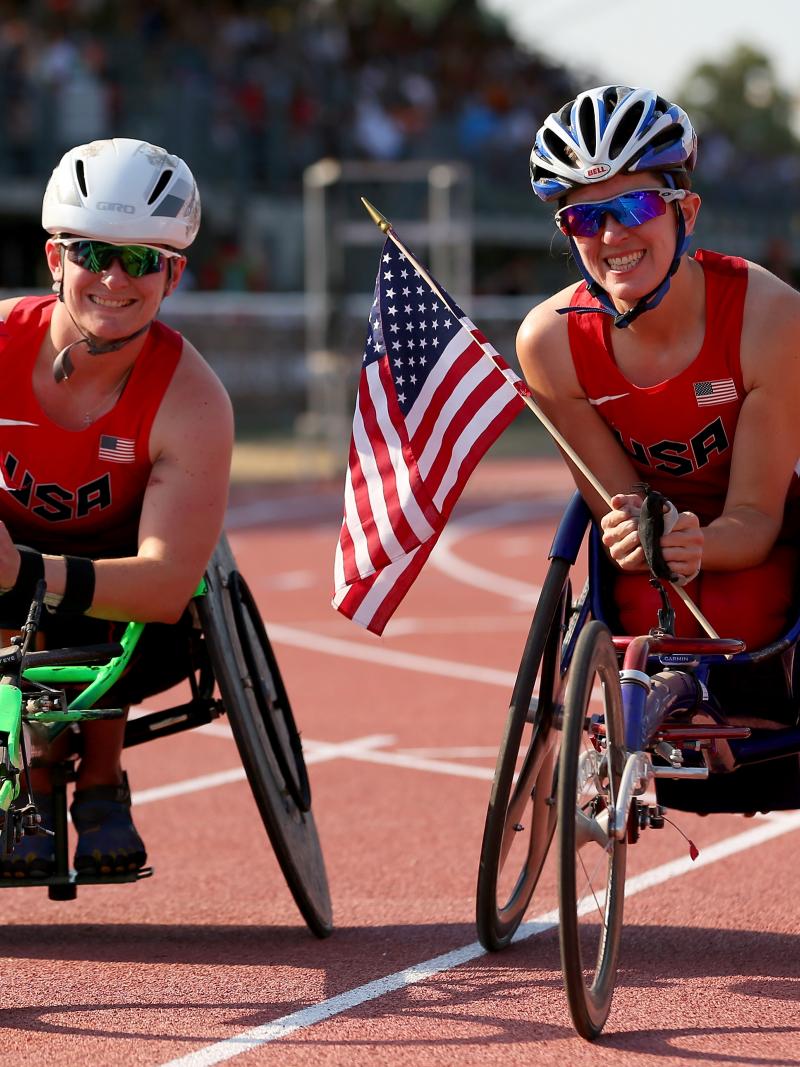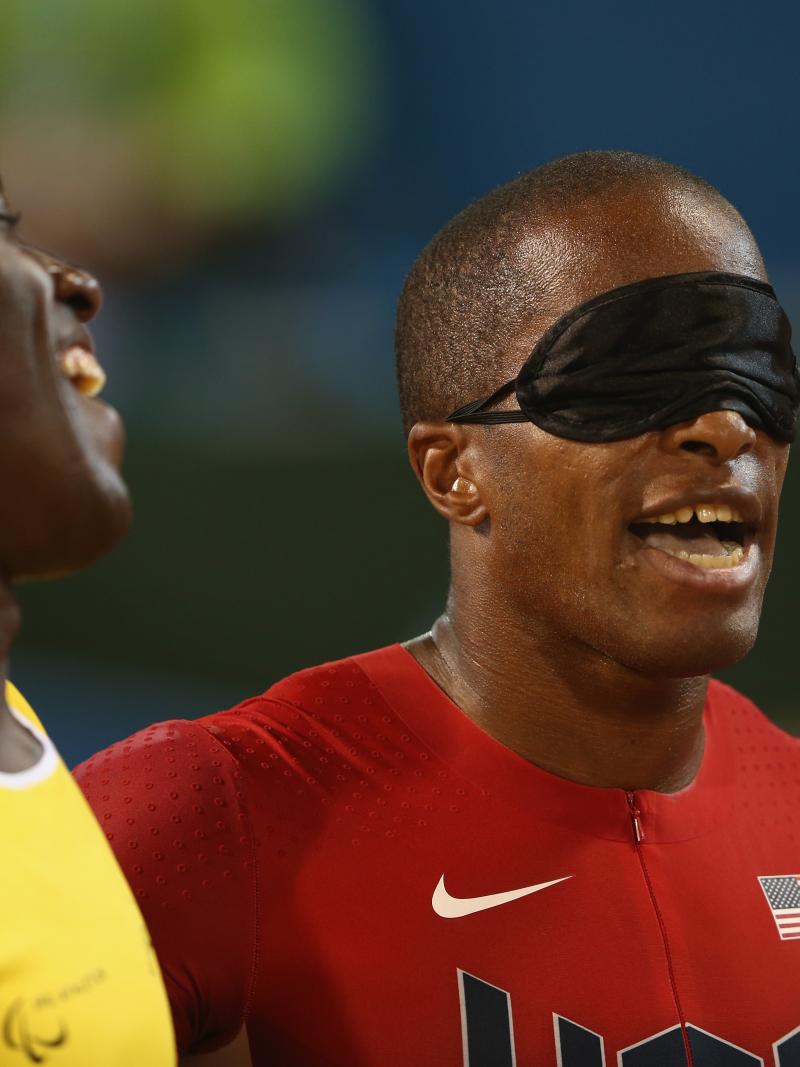Training Tuesday with Australia’s Evan O’Hanlon
The multi world and Paralympic champion who will be lining up for this third Paralympics in September tells us about his training regime. 05 Jul 2016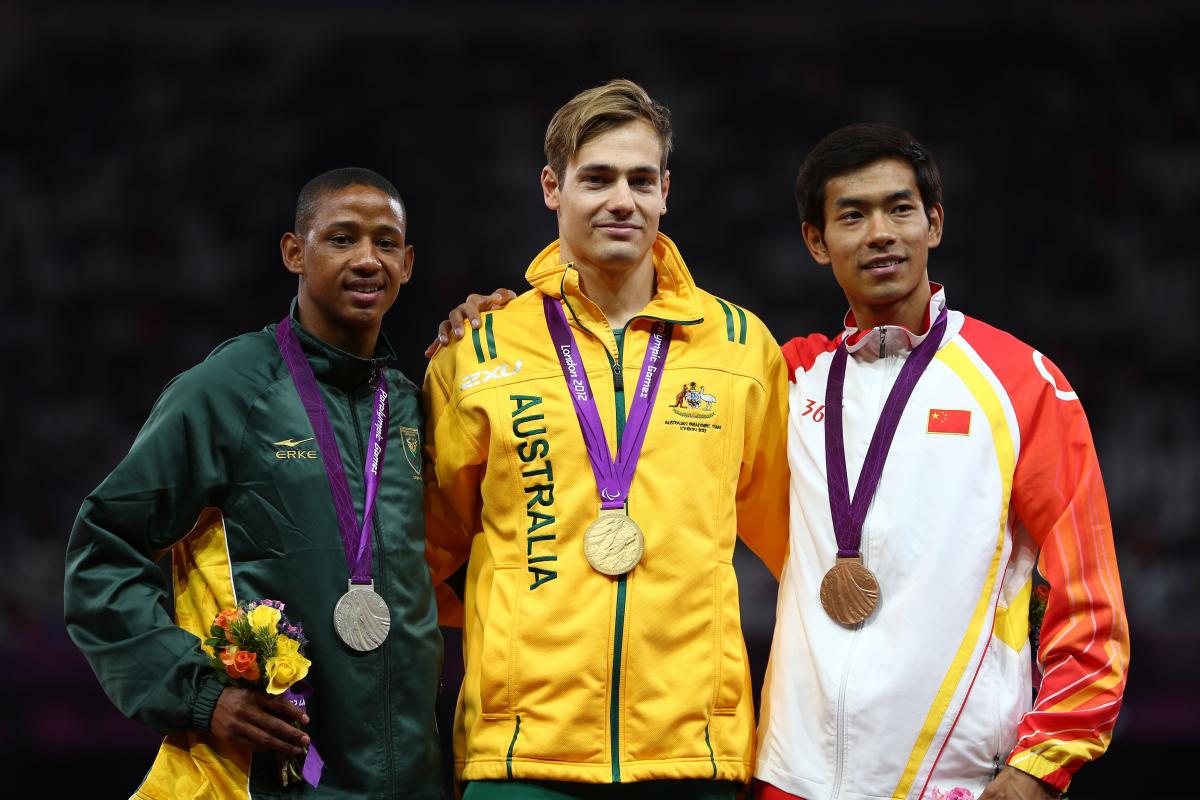
Silver medalist Dyan Buis of South Africa, Gold medalist Evan O'Hanlon of Australia and bronze medalist Wenjun Zhou of China pose on the podium during the medal ceremony for the Men's 100m - T38 at the Paralympics in London
Australian sprinter Evan O’Hanlon provides this week’s Training Tuesday. The 28-year-old multiple Paralympic and world champion races in the T38 class and will be going for gold at this third Paralympic Games in September.
---
“I try to get out of bed as soon as the alarm goes off. I get up about 07:00 or 07:30 and start my day with a coffee and two pieces of toast with vegemite, and as much water as possible so I can hydrate.
Then normally I’m at the track by 09:30 or 10:00. I drive down – it’s only five minutes away.
I do about an hour and a half of warm up – I have a really long warm up - that’s just me, it makes me run better. It’s not fully intense – it’s more that there are lots of things to do. I have bits of rest in between as well, so I warm up really slowly and keep warm across the session rather than warm up fast and drop heat.
It’s my own routine but my squad – like Chad (Perris) and Scotty (Reardon) – will be around, they’re just not doing exactly the same thing as me. There are elements that are similar and we try and work them together so we can have someone to talk to, but it’s my own routine.
Most of my sessions I do with Chad on the track, which is good because in the past I’ve had to do them all by myself. When he joined the group two years ago we started doing some sessions together; he’s come up to the standard where it’s not just like he’s hanging on, he’s actually beating me in some of the reps so it’s really good to have him there - I can’t take a rep off.
A typical session would include five 150 metre reps, with a few minutes break in between each one. It’s hard to explain sprint sessions to people because everyone is like ‘What did you do today?’ and I say ‘Oh, I did five 150 metres’. And they say ‘That’s not that far…’ But it’s about the effort that is put in in that short amount of time.
The session ends about 12:00 or 12:30 and I’ll do my recovery - which is hot and cold water therapy – contrast therapy.
Then it’s lunchtime. I normally go to our café for lunch to get food and coffee, served up by my wife, Zuzi. I’ll have a sandwich or two or a salad.
I don’t go back to training until about 15:30 and that session is in the gym, but in that gap between sessions I normally have either a physio appointment or a massage. Then it’s two hours in the gym, with my coach Iryna. She’s at every session at the track too. She’ll definitely be with me in the gym and sometimes she’s with me at the physio or massage appointment as well just to check what’s going on.
I get home about 18:00 and I’ll hang out with my wife and watch a TV series. We try to share who cooks dinner but it’s mostly Zuzi; it might be steak with home-baked wedges and a salad. We chill out, chat and watch a bit of television, or sometimes we will catch up with friends. I’m normally in bed around 22:00 or 22.30 and I’m pretty much straight out.”

 Facebook
Facebook
 Instagram
Instagram
 Twitter
Twitter
 Youtube
Youtube

